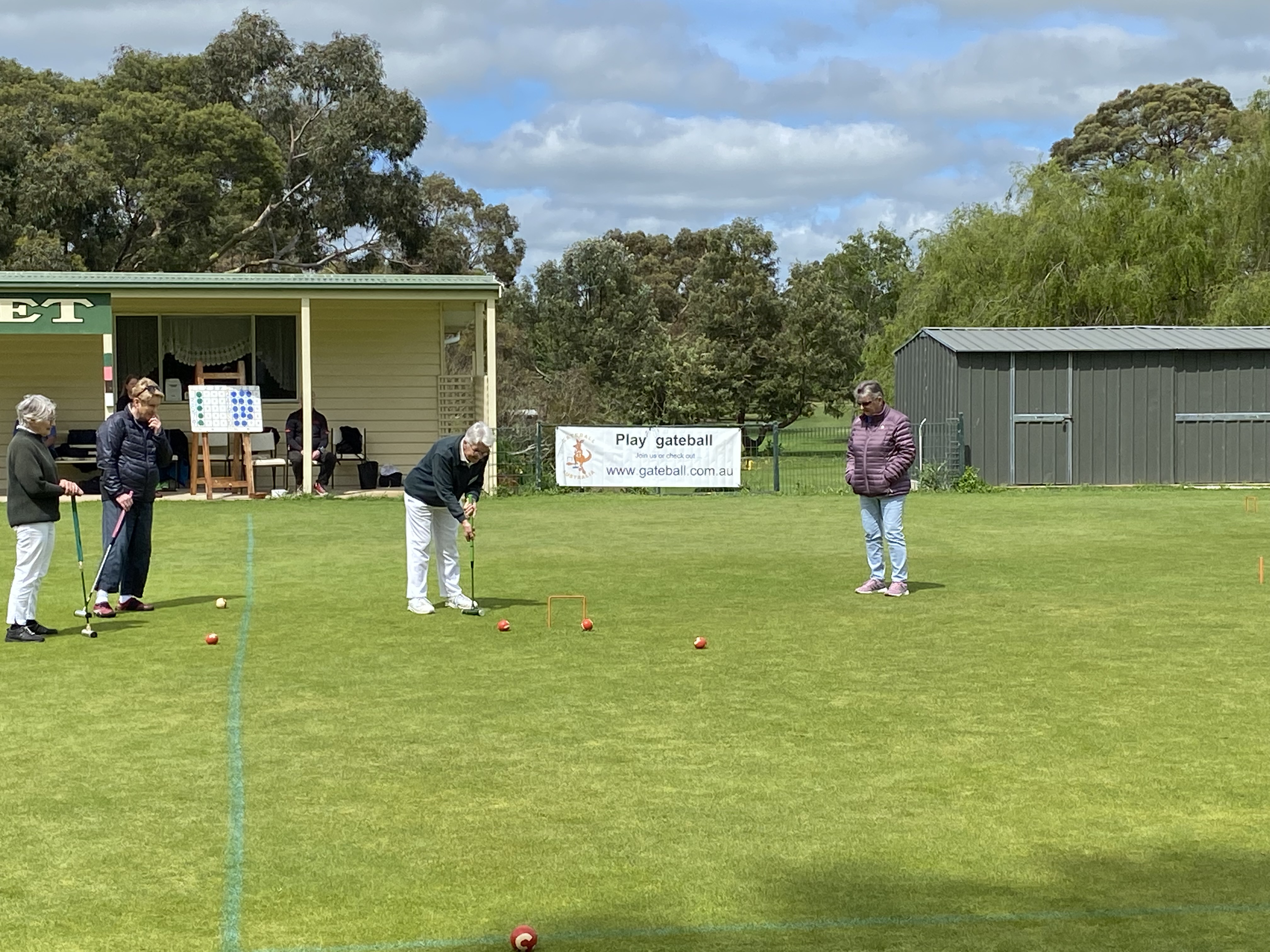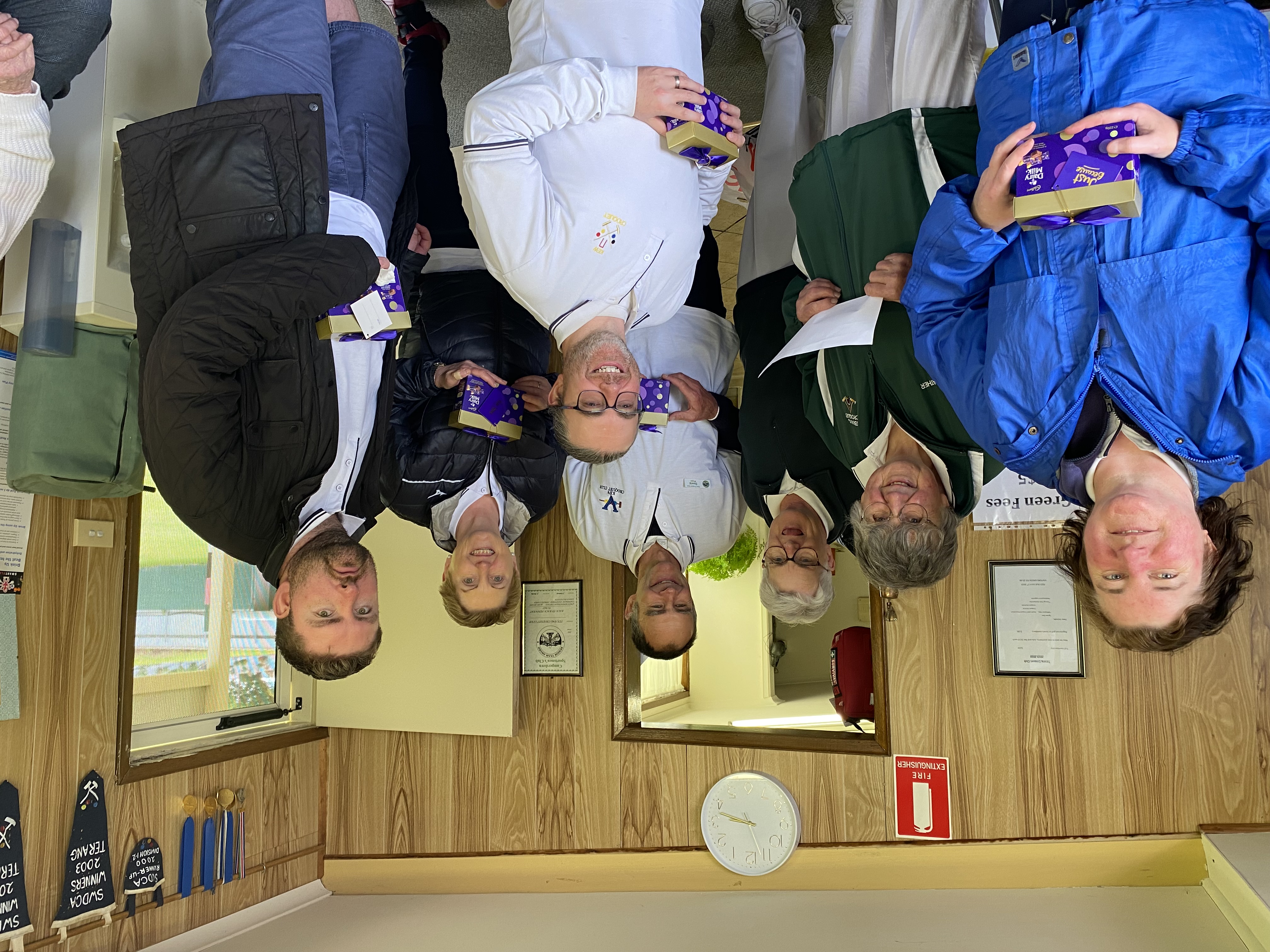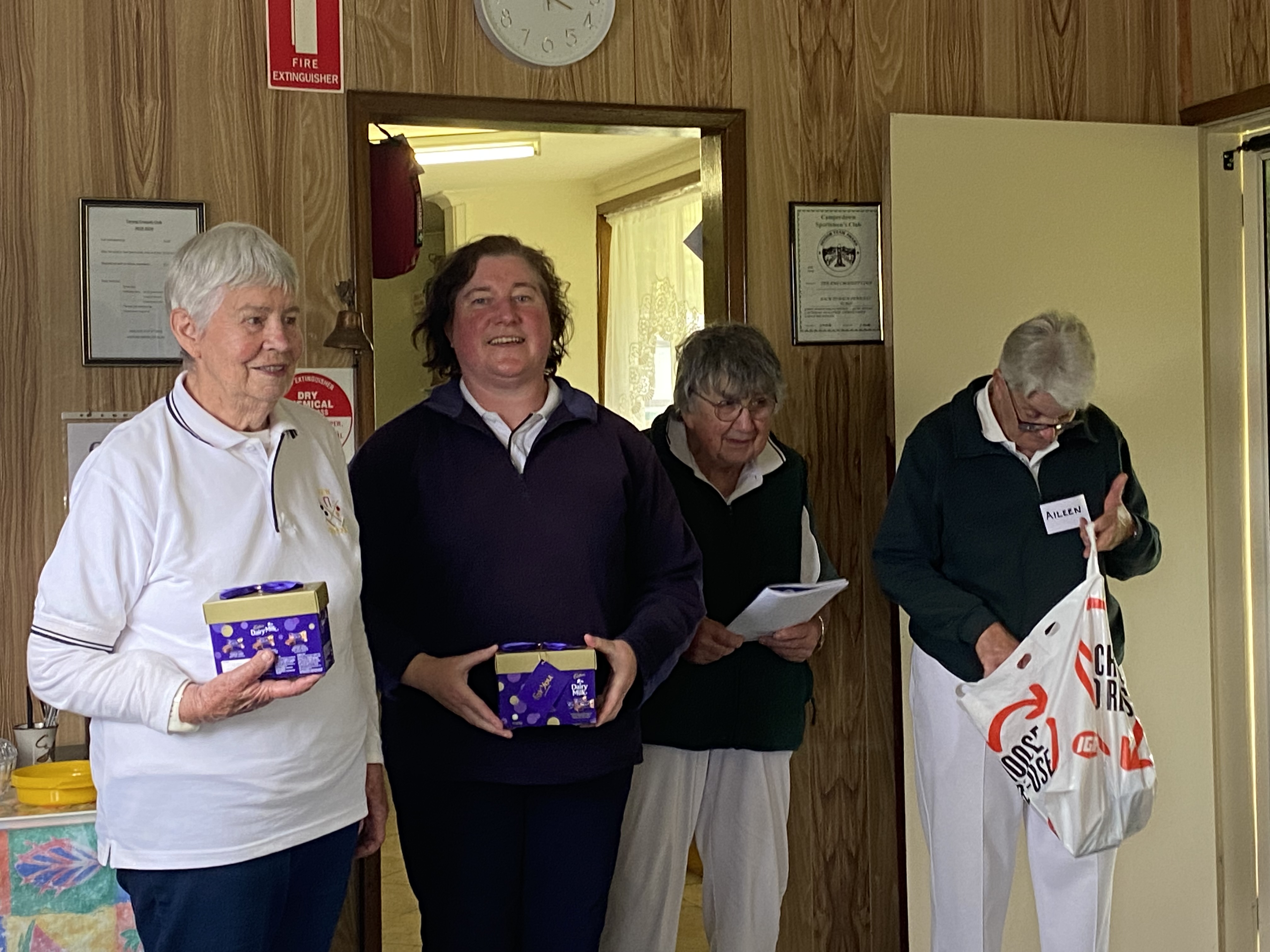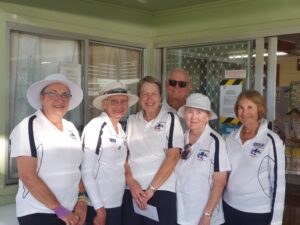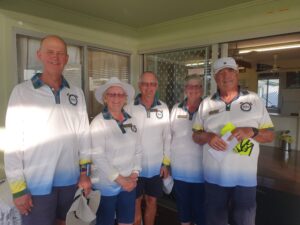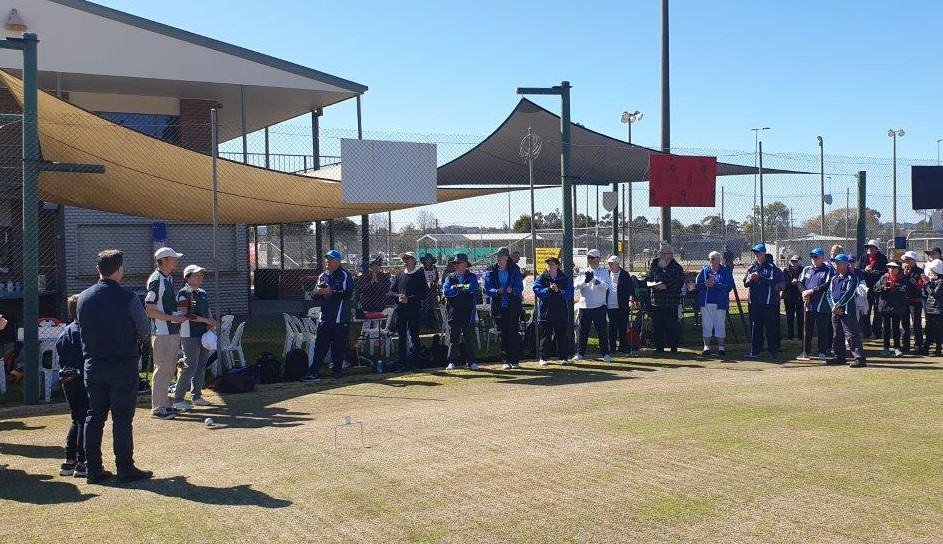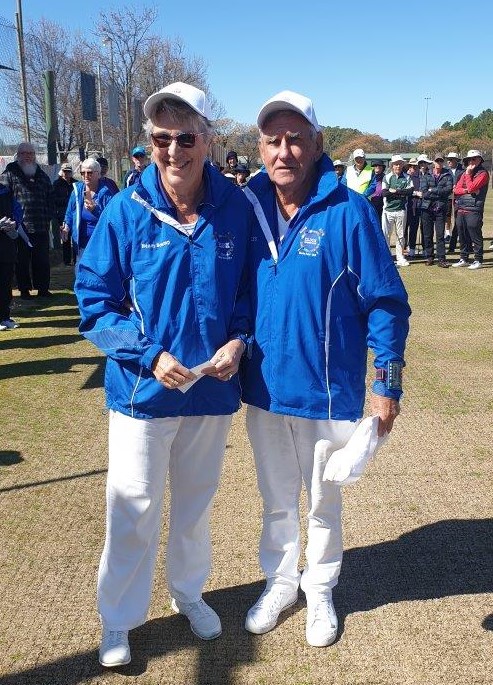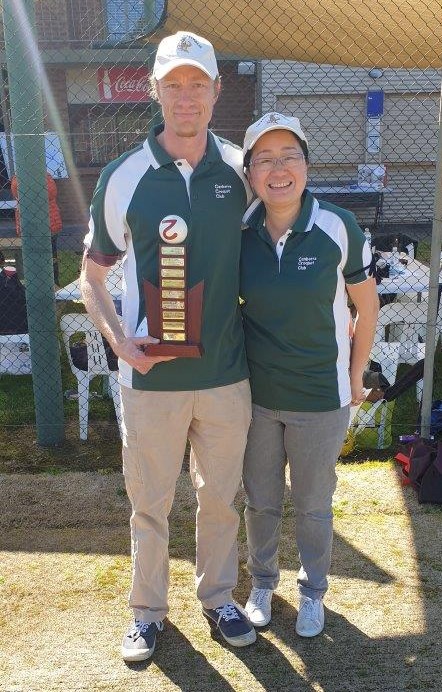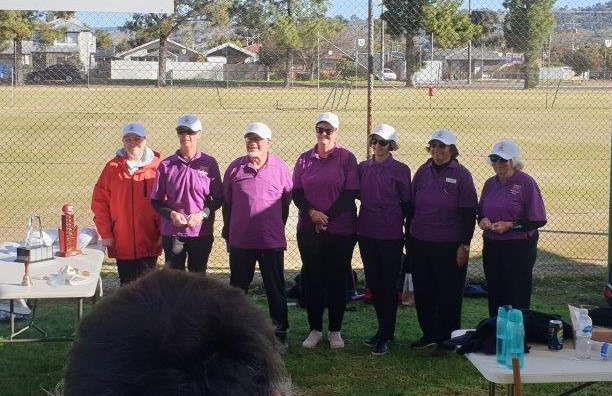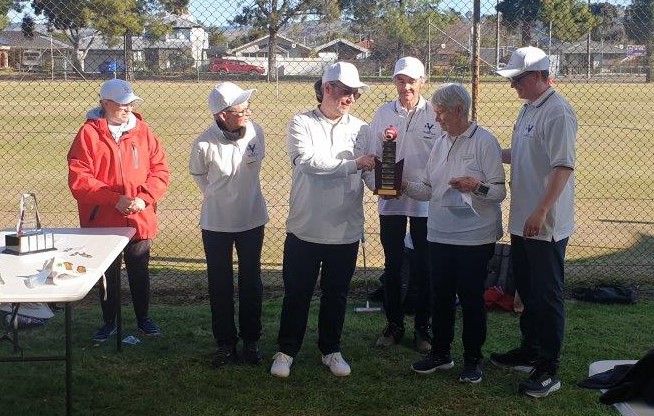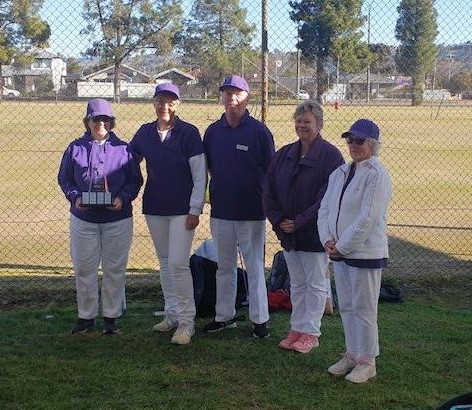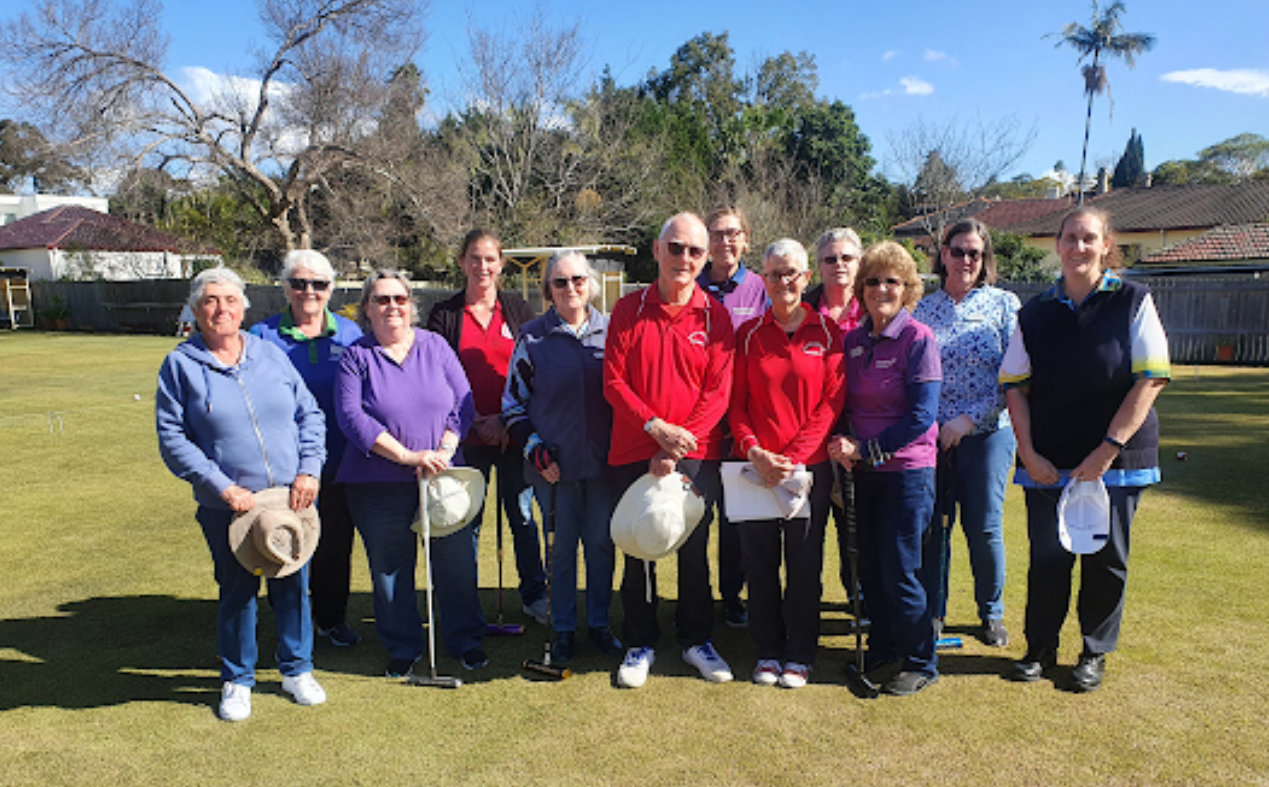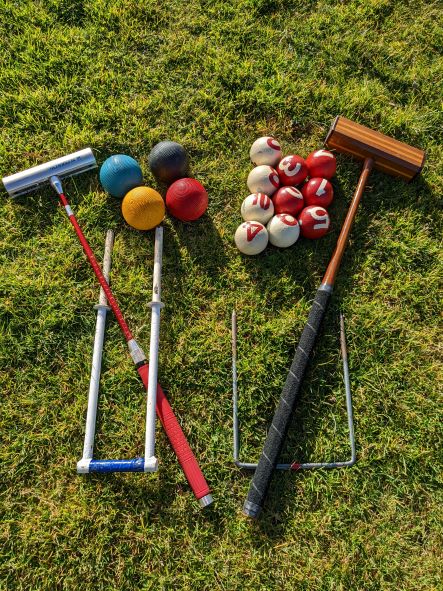
A recent analysis of data from Queensland revealed that 80% of that state’s Gateballers also play another code. The South Australian Coordinator believes that in his state that figure is 100% and it is surmised that this is the case in all the states where Gateball numbers are smaller. So what is it that makes so many of us multi mallet enthusiasts?
Some examples of well and lesser known players have agreed to have their mallet sports stories published. They illustrate the pleasure and benefits gained from playing a range of mallet sports. We can even extol the virtue of playing several games as cross training – a proven approach to improving performance in someone’s main game!
In 2017, Julia Tai did not play mallets sports. Her family from Taiwan were planning to visit Australia and told her they wanted to play Gateball. As a result, Julia joined Southport Croquet Club. Since then, Gateball has become a family affair and Julia, her father and son Ethan all played together in the 2019 Australian Gateball Championships in Melbourne. The family featured in a radio interview for the ABC’s ‘Sporty’ program along with other Gateball families.
Since that time, Julia and son Ethan have ventured into other codes too. In 2018, Julia started playing Ricochet and has participated in pennants events and Division 4 competition. In 2019, she played Golf and has played in Division 3 competitions. By 2020, she was ready to try Association and played in a Bribie Island Competition, as well as winning the Southport Shield for Association.
Linda Davies of Bribie Island came to Gateball as the fourth code in her repertoire of mallets sports. Linda began playing Golf at Bribie Island in 2008 and has made the Queensland State team on three occasions. She has made an appearance at the Worlds in New Zealand. Linda also plays Ricochet and Association. For 7 years she was the State and National Coordinator for Ricochet . She started playing Gateball about 6 years ago and was recently a member of the winning team in the 2022 Queensland State Championships. Linda’s commitment to all 4 codes of mallet sports is demonstrated not only by having been Qld State Coaching Coordinator and a coach and trainer for all codes but also being a referee. She is already qualified as a referee for Golf, Ricochet and Association and is currently working at her Gateball qualification. What an amazing commitment to the full array of mallet sports!
Karen Magee of South Australia tells us she has been playing Golf Croquet since 2012. This year saw her selection for South Australia in the Interstate Shield for the 8th time. During that period she has had a few state coaches with lots of tips and advice, but one memorable comment was, “What will I be doing this year to improve from last year?”. That lead her to Gateball in 2019, which focusses her strokes for roqueting and gives her lots of fun. Gateball certainly keeps her mind in tune, having to make quick decisions to lead to success. Karen believes that the short games keep a player on their toes and involved.
She took up Association Croquet as something else to help her Golf Croquet improve. Covid was instrumental in this, in that she couldn’t travel for the Interstate Shield and was looking for something else. Luckily, she has her own personal coach in this and has had some success. She tells us the long games do concern her, but alternate stroke handicap doubles and playing 14 point games is a way for her to overcome this as a beginner. She enjoys playing 3 codes.
Peter Freer discovered Croquet in 1981, when his work team hired a lawn at the Canberra Croquet Club, and he has been a member ever since – now 41 years and a Life Member there. After retiring from work in October 2008, he took up serious competition; playing Association, Golf Croquet, Ricochet and Gateball. Peter particularly enjoys the team aspects of Gateball, and plays in Doubles, Triples & Teams at regional, State & Australian level – plus a World Gateball Championship in Brazil, as part of a Canberra team. Peter stresses that his interest in GB has been fuelled by the strong and enthusiastic GB base at Canberra CC, led by Glen & Kristina Whitehead and NSW GB Coordinator Judy Tier. Peter is a keen referee and coach in all 4 codes, and notes the crossover in terms of stroking balls, running hoops/gates and tactical/positional play. Peter is married to Kate McLoughlin and they have two (adult) daughters, and a very busy one year-old grandson.
David Pryor of Victoria is the newest of our multi mallet sports players. He tells us that the very first day he arrived for a hit at Kew Croquet Club, he was greeted by a very friendly group, who invited him to join them in a game called Gateball. He now regularly plays Gateball as well as Association and Golf Croquet – all are played both competitively and socially. He says that each code complements the others; at the same time, skills learnt in one code are also helpful across all.
He has found experienced players of all codes to be remarkably supportive, offering coaching and encouraging him to compete, even when his skills development had a very long way to go! Of Kew’s two courts, one is line marked for Gateball (in blue) as well as Croquet, and timeslots across the week have been amicably allocated to the various codes.
Ruth Bridger of Sydney’s Strathfield Club says that, when she joined Strathfield Croquet Club in 2006, she learnt just one code – AC, the only one on offer for years. She is well placed to examine the benefits gained, not just personally, but also for her club, when they agreed to new codes being included at Strathfield CC. The first two, GC and RC, were in 2010. This change meant the club retained her as a member. She had begun to consider leaving a dying club. The changes saved her club, important for her, as she lives nearby. Other personal benefits are: the game variety keeps her interested, and enables her to meet and play with so many club members, who she might not normally see, if they play only one game code. It certainly helps maximise club cohesion. Furthermore, it gives her the choice and flexibility when she needs to change her playing session times/days, as all game codes get good coverage. Like most at her club she is a senior, some of whom have hidden disabilities, with symptoms that change in severity. It is important to her to have access to games which both minimise risks to her health and provide: games of shorter or longer game duration; use of lighter equipment; longer or shorter ‘sitting times’; or games with less or more walking. She believes this diversity is good for her body and mind. She wants longevity in the sport. Her needs are not unique in this regard, nor are her club’s needs. She believes this holistic approach has worked better for all.
As a coach, she finds that it has worked to trust that new players can cope and thrive, when they learn a couple of games quite early. Newer players now take it as normal to play other game codes. The club finds itself in a better position to coach existing players, some who have shown interest, to explore how their skills will transfer to AC, and discover what new skills they can add to their repertoire.
She states enthusiastically that, “It is a great time to join our sport, especially now that we will receive support and resources provided by the newly formed ACA Croquet Academy. As a coach across these four codes, this development matters to her. For those who just want to play one game code, that is not problematic, as the club has a much larger membership and, financially, is in a better position to support all views. Strathfield needs that mix to survive and thrive. It is wonderful to experience all games now being valued.
The ACA is the umbrella organisation for all our mallet sports. The sum is clearly greater than the parts. Any game, isolated from the others, loses.
